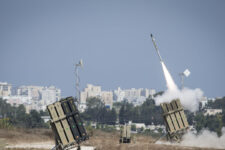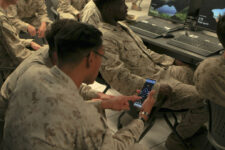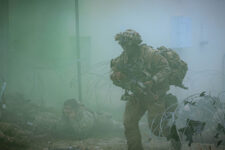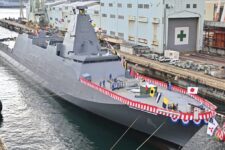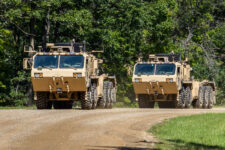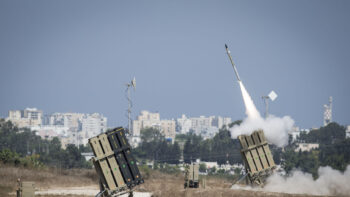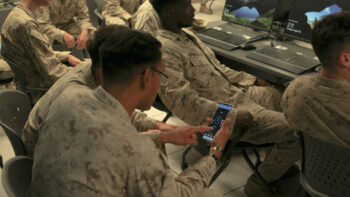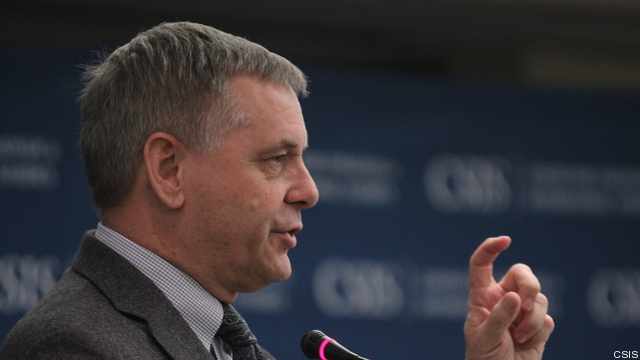
WASHINGTON: A combat patrol is four soldiers walking, under orders to look for trouble and react to it. For most of modern history, infantry squads have been the military’s principal sensors, forcing an enemy to respond, allowing American forces to judge the situation and respond. But that is an always risky, often bloody way to generate intelligence.
“Essentially, you are asking them to troll for trouble,” the retired vice chairman of the Joint Chiefs of Staff, Marine Gen. Hoss Cartwright, told an audience at the Center for Strategic and International Studies today.
But the squad’s role is changing, part of a monumental shift underway in the US military, as enormously powerful computers gather data from a huge array of sources and turn that data into predictive tools.
“Now we are telling those four solders, this is where you want to go at this time,” Cartwright said. “No longer do we troll for trouble; we predict it.”
This is not, said the general famed for refusing to accept the Pentagon’s conventional wisdom, about robots or unmanned systems substituting for troops. The data “doesn’t replace them; it enables them,” he said. In fact, the new availability to troops on patrol, combined with the power of the data “is fundamentally changing warfare.”
(Some of these concepts seem painfully reminiscent of the “revolution in military affairs” beloved of 1990s pundits and former SecDef Donald Rumsfeld, but Cartwright carefully avoided any reference to the now-reviled “RMA.” And his emphasis on empowering foot troops rather than replacing them, on winning fights rather than magically avoiding them, is a distinct difference from the more radical proponents of the now-discredited “transformation”).
Cartwright’s views — aside from his personal connections and respect paid him thanks to his senior role in the Pentagon — are worth noting since he is a member of the Defense Policy Board. Board members provide advice directly to the Defense Secretary and have access to the most highly classified information. And Cartwright works at CSIS, which is run by the board’s chairman, John Hamre.
Predictive information “allows you to arrive with the appropriate capabilities,” Cartwright claimed, something that would please every soldier who has wondered what kind of firefight he’s headed into.
One of the keys to making all this work is the interface between soldiers and the data. Cartwright noted an experiment where soldiers had been equipped with iPads, just the sort of “radical” move that in the past would have required years of debate and probably been resisted by generals worried about troops exercising too much initiative out of the range of adult supervision.
But at least one of the soldiers involved wasn’t much impressed. Cartwright recounted: “iPads — they are for old people. And he told me they meant he couldn’t use his hands.” And there’s the rub. The old guys — the middle managers — thought this would provide capability front-line troops would find useful, perhaps transformative. But, no.
One of the complicating issues in this equation – after all, this whole shift is powered by algorithms – is social media, such as Twitter, Facebook and their relatives. Cartwright pointed to the Arab Spring to illustrate how complex the predictions can become.
“These [social media] tools are being used in ways we don’t completely understand,” he said. The revolts, revolutions – call them what you will – “adhered to physical boundaries, to nation-state boundaries. The conflicts did keep themselves to those borders”: There was a Tunisian revolt, a Libyan revolt, a Syrian revolt, an Egyptian one, each distinct and largely self-contained. Said Cartwright, “We don’t understand why.”
What comes clear from those remarks is that some predictions were clearly made by the US government, based on our tracking of social media, that the Arab Spring would sweep across the region in a single mass movement without regard for national borders. That it did not clearly puzzles Cartwright and raises interesting questions about what the intelligence community and the White House expected after a Tunisian man set himself on fire and helped bring down one of the more repressive governments in the Mid East.
Regardless of whatever flaws there may be in our predictive abilities, Cartwright clearly believes in the importance of the shift from troops being relatively unguided sensors to their being armed with predictions based on massive amounts of data, and being able to update that information as they move.
The importance of this shift in combat isn’t felt just by the front-line troops who benefit. It bends the power balance between platforms – tanks, planes and ships – and soldiers, Cartwright argues. Dealing with that will be difficult for the four armed services to cope with.
“The hard part is recognizing that the power has shifted from platforms to data,” he told the audience at CSIS. Why? Because the personnel and acquisition systems are, in many ways, built around platforms: “The incentive structure is completely built around those platforms.”
I asked the former vice chairman if large shifts in spending were required to cement the shift to data and how the military – especially the big and usually slow-moving Army – would cope with the doctrinal and cultural changes needed to accommodate the growing influence of predictive data.
Changing “a culture of 2.5 million teenagers who are armed and moving them in a direction that is fundamentally different” is difficult, he said, to laughter from the audience, and it is “middle management that resists.” But those changes are not as hard to make when you are at war, Cartwright said: “When you are at peace that is much more difficult.”
Once the majority of allied and American troops come home from Afghanistan next year, the military will be fundamentally on a peace footing, readying for the long drawdown — not a conducive atmosphere for fundamental cultural change.
Trump taps former Navy diver Hung Cao for service’s No. 2 civilian job
A retired Navy captain, Cao unsuccessfully ran for elected office in Virginia in 2022 and 2024.

